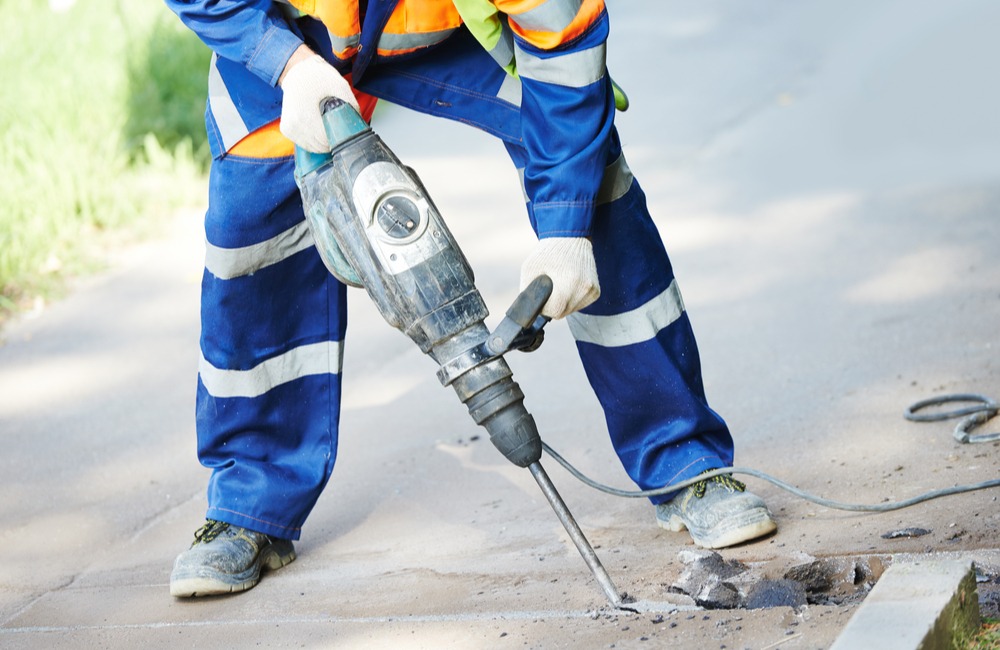Health Surveillance
According to the Health and Safety at Work Act 1974 (HSWA) employers are required to take all reasonable steps to protect the health, safety and welfare of their employees. Health surveillance plays a vital role in fulfilling this obligation. By regularly assessing your employees’ health, you can ensure that your duty of care is met and that any potential work-related health issues are identified early, allowing for timely intervention.
How We Support You
At Healthscreen, we offer a wide range of health surveillance services designed to help you manage workplace risks effectively. Our services include audiometry for hearing checks, spirometry for lung function tests, musculoskeletal assessments, and safety-critical medicals.
Our occupational health team can visit your site to conduct health surveillance, ensuring minimal disruption to your operations. Alternatively, we can tailor a programme that suits your specific needs and requirements.
If you believe your employees may be at risk or if you would like more information about our services, please don’t hesitate to contact us.
To receive a quote, please use our Quotation Form to provide your detailed requirements. Our dedicated team will then provide you with a tailored estimate.
Our Three-Year Loyalty Plan
At Healthscreen, we value long-term partnerships. Our Three-Year Loyalty Plan is designed to provide stability, reward loyalty, and support your team’s wellbeing while helping you manage costs. By joining, you’ll benefit from fixed prices for the duration of the plan – shielded from inflation as long as your surveillance needs remain the same.

Quality Health Surveillance and Site Insights
In your first year with us, our expert technicians will carry out thorough health surveillance for your employees, making sure every assessment meets the highest standards. Once the surveillance is complete, the technician will conduct a walkaround of your site, offering tailored advice and noting areas for potential improvement. Meanwhile, our nurse will review any health issues in detail and provide in-depth reports for each employee. These results will be delivered to you within 2-5 working days.

Progress Monitoring and Comparative Analysis
On our second visit, we’ll build on the groundwork laid in Year 1. Our technician will revisit the site notes from the previous year, checking whether suggested improvements have been implemented and offering further advice if needed. Health surveillance will then be conducted, with the results compared to the first year to identify any significant changes. This approach allows us to act promptly to address emerging issues and offer employees the best possible support.

Tracking Long-Term Trends and Planning Ahead
In the third year, we’ll continue monitoring progress and providing advice to improve workplace safety and employee health. Health surveillance will include a comparison of results from all three years, identifying trends and addressing any persistent concerns. As this is the final year of the plan, we’ll discuss extending the partnership on an annual basis to make sure your employees and your business continue to benefit from proactive management and expert support.

Audiometry

Lung Function (Spirometry)

Display Screen Equipment (DSE)

Night Worker Medical Assessment

Dermatology (Skin) Assessment

Musculoskeletal Assessment

Hand-Arm Vibration Tier 1 – Tier 4

Healthy Worker Medicals
Main Benefits
Implementing Healthscreen’s Health Surveillance services offers several key benefits for your business:
- Early Detection of Health Issues: Regular health surveillance allows for the early identification of work-related health issues, enabling timely interventions that can prevent minor conditions from becoming serious problems.
- Compliance with Legal Requirements: Our health surveillance services help you fulfil your legal obligations under the Health and Safety at Work Act 1974 (HSWA), ensuring that your business remains compliant with all relevant health and safety regulations.
- Improved Workplace Safety: By monitoring the health of your employees, you can proactively address potential risks, contributing to a safer work environment and reducing the likelihood of accidents or health-related incidents.
- Minimal Disruption: Our occupational health team can conduct on-site assessments, allowing you to maintain regular operations with minimal interruption, or we can create a programme that fits seamlessly into your schedule.
- Enhanced Employee Wellbeing: Regular health checks demonstrate your commitment to employee wellbeing, boosting morale and fostering a culture of safety and care within your organisation.

FAQ
What is meant by health surveillance?
Health surveillance is a system of ongoing health checks designed to monitor employees who are exposed to specific health risks at work.
What is an example of health surveillance?
Examples of health surveillance include regular lung function tests for workers exposed to dust or chemicals, such as in industries like construction or manufacturing. Other examples include hearing tests for employees working in noisy environments, skin checks for those exposed to hazardous substances, and vision tests for workers who use display screens extensively. These health checks help identify early signs of work-related issues such as respiratory problems, hearing loss, skin conditions, or eye strain before they become serious.
Is health surveillance a legal requirement in the UK?
Yes, health surveillance is a legal requirement in the UK when employees are exposed to certain hazards that could harm their health. Employers must comply with regulations, such as the Health and Safety at Work Act 1974, to ensure they are fulfilling their duty of care.
What is the purpose of surveillance in health?
The primary purpose of health surveillance is to protect employees by identifying potential work-related health issues at an early stage. This allows for prompt action to prevent the development of serious health conditions and helps maintain a safe working environment.
How long should health surveillance records be held?
Health surveillance records should be kept for a minimum of 40 years. This retention period is important because some work-related health issues can take many years to develop, and the records may be needed to support future assessments.

Healthscreen’s New Clinic – The Pines Hospital, Manchester
This pristine, almost palatial hospital is easily found just outside the city centre in the luscious green of South Manchester and sits conveniently close to the airport and with excellent access to the nearby motorway and rail links. The Pines boasts incredible facilities within, and benefits from two state-of-the-art theatres;

Methyl Ethyl Ketone (MEK) Monitoring – The Need to Knows
What is MEK? Methyl Ethyl Ketone, otherwise known as MIBK or butanone is a colourless liquid with an acetone-like odour. It is mostly used in the application of protective coatings and adhesives, reflecting its fine characteristics as a solvent. Other uses include pesticide application, or in factories that produce paint,

Perchloroethylene Monitoring
What is Perchloroethylene? Also known as tetrachloroethylene, tetrachloroethene, perc/PERC and PCE, perchloroethylene is a chlorocarbon that takes the form of a colourless, sweet-smelling liquid. Celebrated self-taught English physicist and chemist Michael Faraday first managed to synthesize it in 1821 by the thermal decomposition of hexachloroethane. What is it used for?

